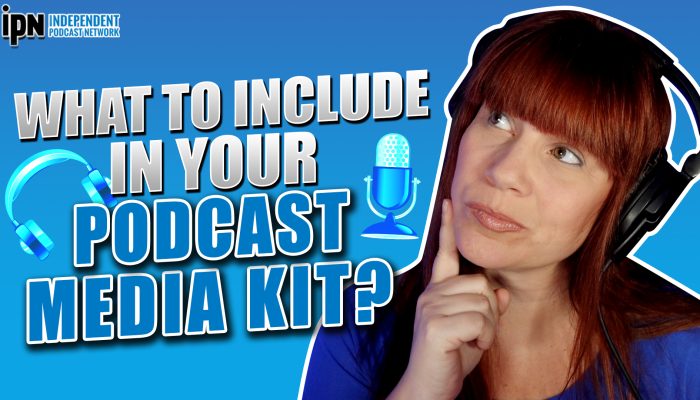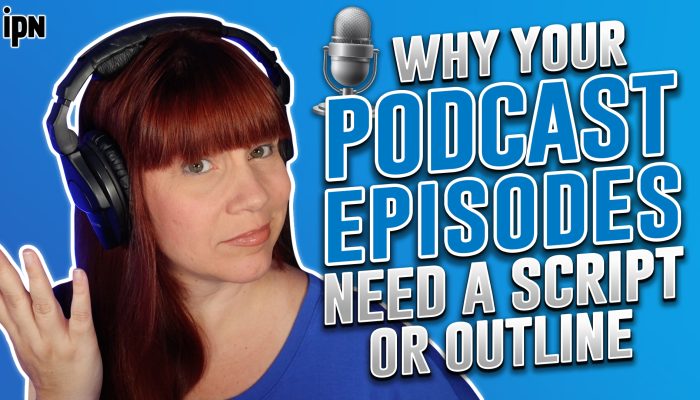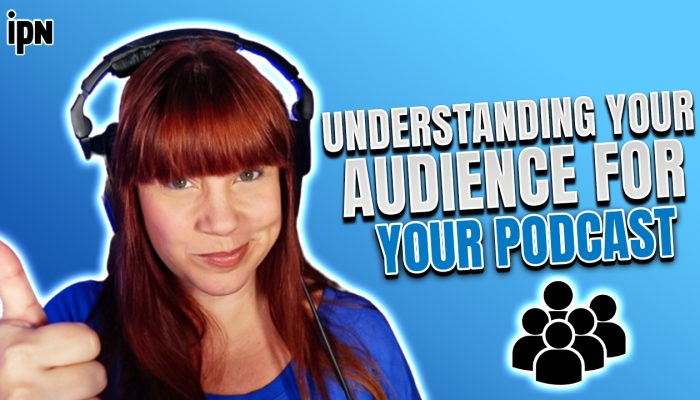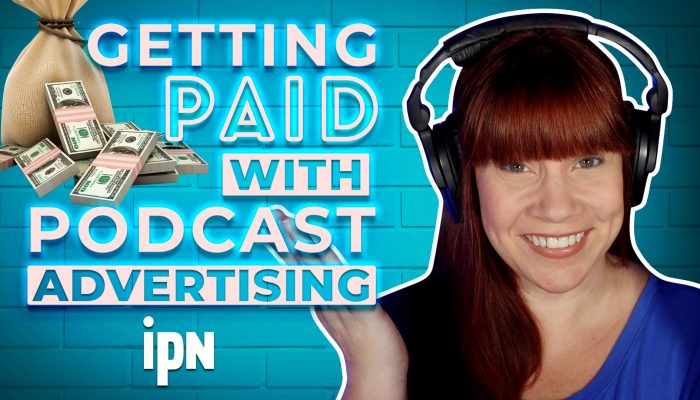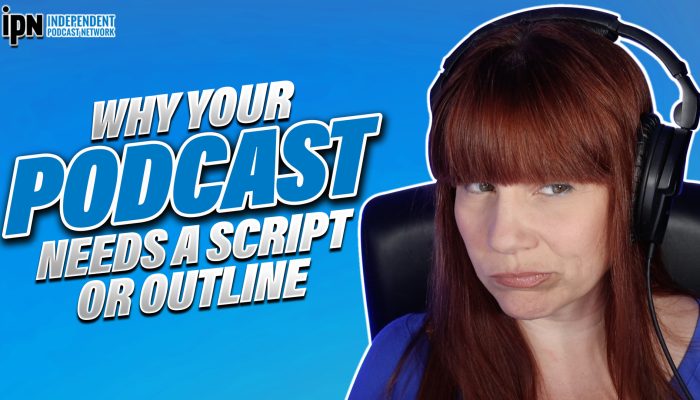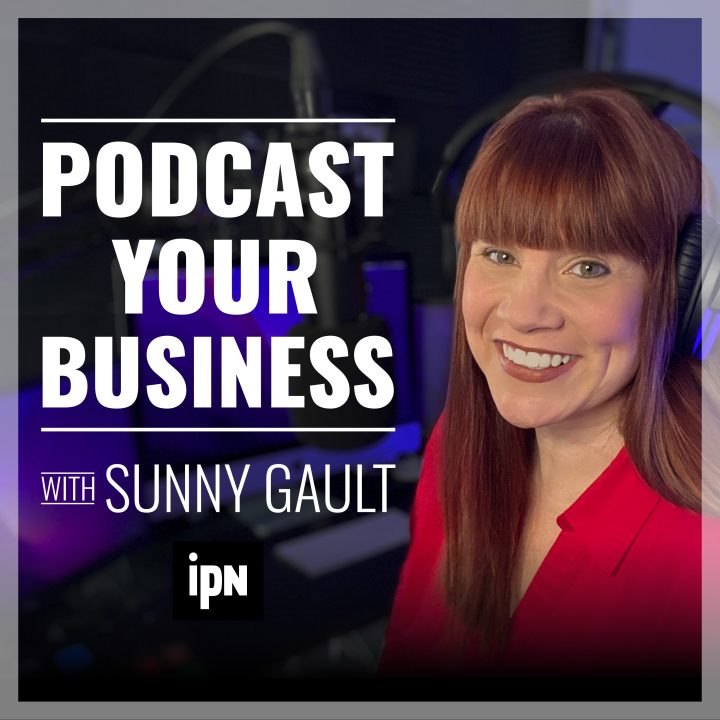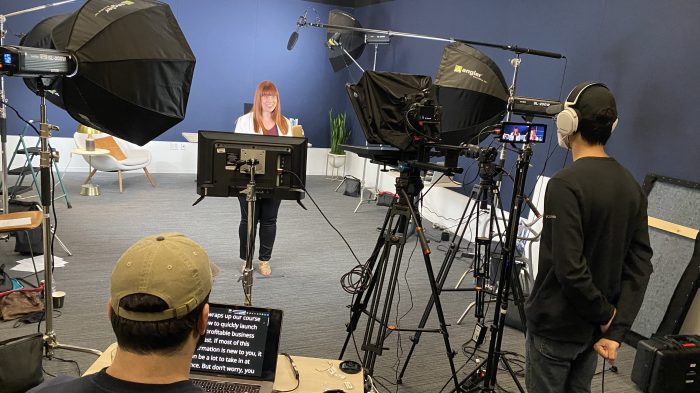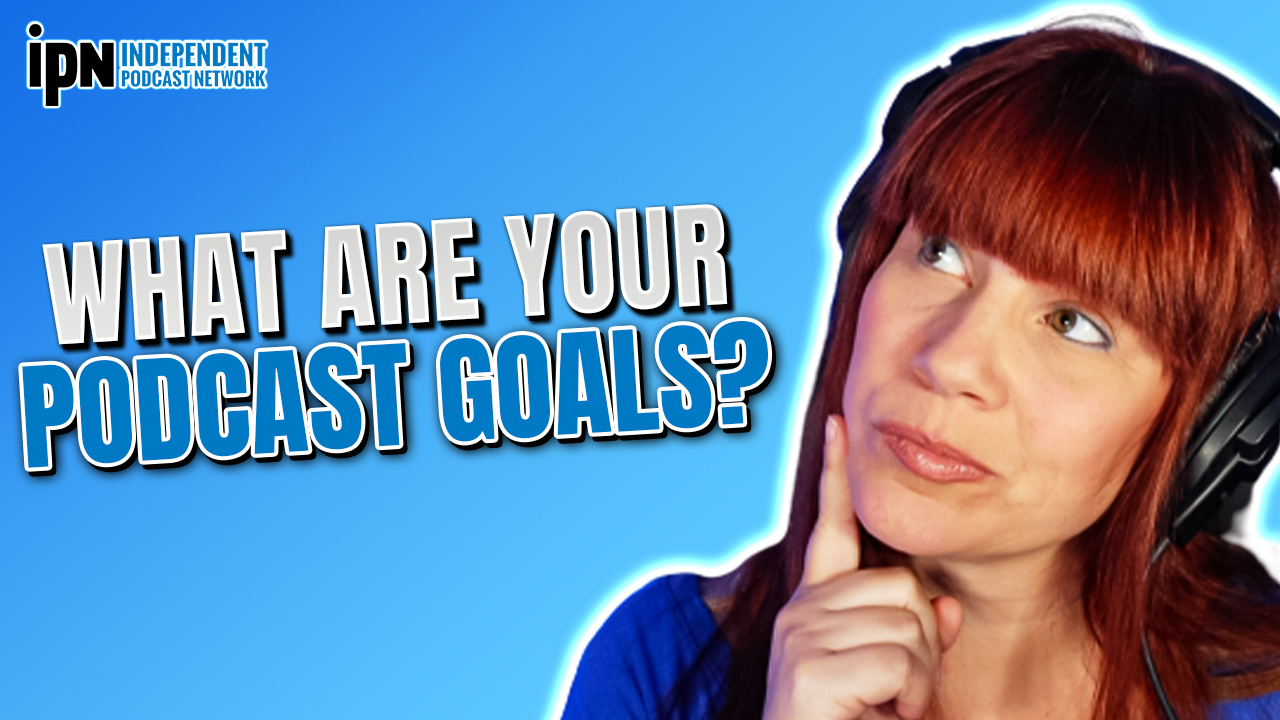
goals help you spend time and money wisely
All podcasters should have goals for their show. Goal setting should start even before you commit to starting a podcast- because you need to make sure that podcasting is the best way to achieve those goals. If you decide to podcast, setting both short and long-term goals will help you monitor your progress and ensure you’re spending your time and energy wisely. Today we’ll give you some ideas on how to create goals for your podcast.
In today’s episode, we’ll discuss…
- The importance of knowing your goals BEFORE you start a podcast.
- The types of goals you should set for your podcast.
- What to do if your podcast isn’t meeting your goals.
here are the steps needed to start your podcast!
Grab this guide and start checking off each item as you complete it. Before you know it, your podcast will be ready to launch!

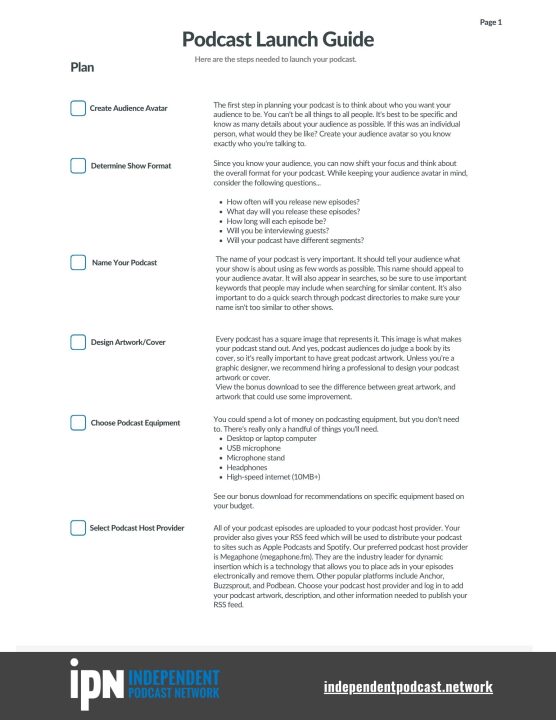
Episode Transcript
0:01
All podcasters should have goals for their shows. Goal setting should start even before you commit to starting a podcast. Because you need to make sure that podcasting is the best way to achieve whatever your goals are. If you decide to start a podcast setting both short and long term goals will help you monitor your progress and ensure you’re spending your time and energy wisely. Today will give you some ideas on how to create goals for your podcast. Take it away, Radio Man. Podcast Your Business.
0:42
Hey, everybody, welcome back to Podcast Your Business. I am the host of this show. My name is Sunny Gault. I’m a podcast coach and mentor who’s been podcasting for get this 17 years lots have changed during that time. I’ve made a lot of mistakes. And I am focused and hopeful that you will not make the same mistakes as me. That’s what this podcast is all about. I am also the founder and CEO of Independent Podcast Network. And we put out a ton of free content, including this podcast to help you get up and running with your show. And then when you’re ready to make some money with your show, we’re hoping you come back to us and we can help connect you with advertisers. So that’s how we make our money. But today, I am here to help you create amazing podcasts for your business. And we do this by mastering the five P’s of podcasting.
1:37
Thank you radio man, yes, the five P’s of podcasting. And I go over these five P’s in a free online course. It’s available now on the website, https://independentpodcast.network, also on our YouTube channel, and we talk about the five P’s. So what are the five P’s? First you have prep. Should you even be starting a podcast? And what are some of the things you should consider? In order to make that decision? Plan? What is the look and feel for your show? What’s the overall format things like that produce? How do you record your show? How do you edit? How do you create amazing content? Promote. Once you’re done with it, then how do you tell everyone about it and get people either listening or watching your show? And finally, the fifth P is profit! How are you going to make money through your podcast? It’s not that your podcast has to generate revenue. But somehow your business has to benefit. And ultimately your business should make money as a result of your podcast. So radio man, which of the five P’s are we talking about today? Prep!
2:41
Yes, we’re talking about prepping for your podcast, because there’s certain things that you should be doing before you even commit to your podcast and asking yourself what your goals are for your show. I mean, that’s something you should do in the beginning. And you should actually do as you continue to create your episodes, launch new seasons, and things like that you should always be creating more and more goals, but it really starts before you start podcasting. If you have your own business, you’re probably used to setting goals for your business. These goals help you focus, right, it helps you stay on track so your business can be successful. And really, podcasting is no different. Think of it as a mini business. Okay. Most successful podcasts have goals, sometimes podcasters meet their goals. Sometimes they fall short. And sometimes get this guy’s you exceed your goals, but I guarantee you wouldn’t exceed your goals and actually get, you know, bigger and better than what you thought you had in your head. Had you not set some goals. Okay, so regardless of where you’re at in there, it’s all about having a plan. Because it’s the old adage goes, if you want fail to plan, you plan to fail. So what are we going to talk about on today’s episode, we’re going to talk about the importance of knowing your goals before you start a podcast. I’m really going to hammer that in today, guys, if you’ve already started your show, that’s okay, set goals moving forward. But for those of you who are on the fence and thinking about starting a podcast for your business, you need to start with some goal setting. Okay, when we’re talking about the importance of that, we’re also going to talk about the type of goals you should be setting for your podcast. And then we’ll also discuss what to do if your podcast isn’t meeting your goals. Okay, we need to be realistic, realistic, realistic with what we’re planning to do with our show and it it you know, you may have to make some hard choices with your podcasts in the future. So I’m going to let you know what I would be looking for in shows what I recommend to clients and podcasters that I talk with if things aren’t going their way because is honestly, I think we need to keep it real. And as a business owner, you’ve got a lot to focus on, you are embarking on this new endeavor. But if it’s not benefiting your business, that’s not good. And we need to make changes. Okay. So we’re going to dive into all of that right after this quick break.
5:19
Okay, let’s talk about creating some goals for your podcast. Here’s the thing, I mentioned this earlier, I’m going to hammer this home, create goals before you decide to create a podcast. This is why this is part of prep of the five P’s of podcasting is not part of planning, because before you get to planning your show, you need to prep. And so this is really, really important for those of you who are on the fence because you need to make sure your podcast can achieve your goals. So you have to figure out what your goals are, before you even know if your podcast will work for whatever you want to do. So here’s my advice. Podcasting is not a short term marketing solution. Let me give you an example. If you’re wanting to sell, let’s just say I don’t know, random number 10,000 copies of this new book that you just wrote, okay, and you are on your you’re on a timeframe here, you got to do within a month, let’s say, I wouldn’t necessarily recommend that you start a podcast as a marketing tool to sell 10,000 copies of your new book within a month. Why? Because podcasting is about the long term marketing goals. Okay. So on the other hand, if you are looking for a way to gradually build your client list, your customer list, and perhaps reconnect with old customers, you know, gives you a way to outreach to people and to inform them of different topics and talk to them about different things through your podcast and basically stay on their radar, then yes, podcasting is an amazing tool, you know, for people that you know, clients that you are people you’re trying to get as a client, and oh, they’re right there, but they haven’t committed yet. If they can listen to your podcasts and hear your passion for what you’re talking about. Those are great reasons to start a podcast. But, again, if you’ve got some kind of crazy short term thing you’re trying to accomplish, I don’t recommend you start a podcast, I recommend you invest in advertising and listen to the advertising podcast about the you know, the best way to accomplish what you’re trying to do. That’s not the best way to use a podcast. Okay. So that’s what I mean, when I say make sure your goals, you know, can be accomplished through your podcast. So you got to have your goals first. Right?
8:00
So now let’s talk about the goals. What type of goals should you create for your podcast? Now, a lot of times when I ask people what their goals are for their show, I get a lot of very general answers, okay, things like, I want to help people, which is great. I want you to help people to that’s one of the things that keeps me podcasting all the time because I know I’m helping people. But helping people is not one of my main goals. Okay. Some people say I just want to entertain people again, that’s great. It’s not really an overall goal, okay. It’s kind of like a side effect or something that happens as a result because you’re trying to go after other goals. Or if you want to say, Oh, I just want to have fun or I want to be famous. First of all, if you want to be famous, I don’t recommend you get into podcasting. There are a couple you like there are some people that have become famous through podcasting. But there are other ways to become an amazing influencer if that’s really what you want to do. So hopefully, if that’s your goal, maybe you should try something else. Okay. So first of all, just stay away from these generalizations, okay? To be famous, make money, help people entertain all that kind of stuff yet? Yes, yes, yes, yes, yes, that will come with your podcast. But I want you to create smart goals for your show. Have you guys heard the the SMART acronym, that’s what we’re going to talk about today? Because this can be totally applied to podcasting. So SMART is an acronym. We’re gonna go through this. Okay.
9:46
The S stands for specific, okay. When you’re thinking about your goals, and I want you to think about specifically how this impacts your business, all right. You need to come up with some very specific goal. So one goal might be how much revenue you want to bring in through your podcast. And as I said earlier, it may not be that you’re working directly with advertisers that may not work for you Show, but you may be able to promote your online course through your podcast. And you just have to make sure you’ve got a way to track that right that your podcast is bringing in additional revenue, whatever that number is. Make sure you write down a number. Okay? It may be to grow your audience. Now, here’s the tip, I do not recommend that you say I want to grow my audience by enter a specific figure, I recommend that you say I want to grow my audience by X percent. Because you don’t really know where these numbers are going to rest. And you’re just you’re just kind of pulling numbers out of thin air anyway, you should have a better idea with your revenue, because you know how much whatever it is you’re trying to sell, you know how much that costs. But when it comes to your podcast, you really don’t know how quickly it’s going to grow. So I would just recommend that you do percentages, okay, but make them specific. So that’s the s specific. The M in the SMART goal is measurable. So when we talk about, like, we were just talking about specific, we’re talking about revenue, if we’re talking about growing your audience, we can measure that. Okay, but if you were to just say, Oh, I just want to make people happy. How in the world are you going to? To measure that? Okay? Is it by how many emails people send to you that say how happy they are about your show, you’re probably going to be waiting a long time, it’s going to be really hard to create some sort of metric for making people happy. So make sure whatever your goal is, you can measure it. So you can go back and see if you’re accomplishing those goals. Okay?
11:38
The A in smart is attainable. Can it even be done? You know, sometimes, when people are setting goals, they it’s more than shooting for the stars. It’s like, way beyond that now, I am a dreamer, guys, I love setting goals. And I love thinking super, super big. Anytime I come up with a new project or idea, I first think about how big it can get. And then I come back and go, Okay, now how do we start this and then what is the process to get to each step in order for it to be as big as I want it to be? So I get setting big, big goals, okay. But you also don’t want to have your goals be so big that there’s just no way it’s going to happen. And you know, your business best. Okay, you know, what you’re able to do perhaps with other marketing tools that you have, right. So if you’re running Facebook ads, or your through your newsletter, whatever the case may be, you kind of know how much effort you’re putting into it, or how much money you’re spending and what you’re getting back out. So think about that when you’re setting your attainable goals for your podcast. Next, the R is for relevant is the content you’re producing, or planning to produce through your podcast? Is it helping you achieve your goals? If you’re planning to make money through selling an online course, on your podcast, but you’re not talking about any of the topics that would make people want to buy your online course, you’re probably not going to achieve that goal. So make sure it makes sense. Make sure it’s relevant. time bound, that’s the T for our SMART acronym. Okay, time bound just means what is the deadline or timeframe for your goals? How often are you going to revisit these goals and make sure that you’re making progress? My recommendation at the very least, is that you do this every quarter, since you’re probably in the business mind frame of quarters anyways, right? So think about quarters. That’s, that’s a really good metric to use, especially if you are producing content every week. And you’re not doing seasons, right. So you’re just doing something on a weekly basis every other week, once a month, whatever your release schedule is, but you don’t have a necessary end date in sight, at least for a season or whatever, then I definitely recommend quarters. If you are doing seasons, seasons are great way to stop and reflect. So whatever your season is, it could be 10 episodes 13 episodes, there is no quota, there’s there was really no number to go with that. That seems to be somewhat standard between 10 and 15. But honestly, you can make your season 50 episodes and it really doesn’t matter. It’s whatever you want it to be what whatever makes sense for your workflow, okay? But think about the time how often you’re gonna go back and revisit these goals because it is important to go back don’t just make the goals and leave them there. And just hope you know, hope you achieve them. No, you gotta go back because you have to be able to make some decision Just based on those goals, and what you’ve been able to accomplish.
15:05
So, now let’s talk about what happens if you don’t meet your goals. First of all, I just want to encourage all of you don’t give up. Same thing I would say, with your business. You know, if things didn’t go the way you wanted them to first quarter, you’re probably not going to throw in the towel with your business. I don’t recommend you do that with your podcast either. Remember, your podcast is kind of like a mini business. So don’t just throw in the towel, don’t just give up. One of the main things that I do whenever I’m doing something with my podcast, because I’m always trying new things and testing things out, I do what I like to call roll with the punches. And I may have talked about this on a previous episode. But rolling with the punches is a boxing term, when someone hits you, or when you get hit through something in business, or your podcast that doesn’t quite go your way just like a boxer would be hit, you know, by his opponent or her opponent, you roll with the punches, meaning whichever way the punch goes, you roll your hand that way. So the impact isn’t as difficult. It doesn’t hurt as much. And I do the same thing in podcasting. So if I launched a new show, and it wasn’t quite going my way, I would look at it and go, Okay, well, what, what did I get out of this? Or what was working for me? And I pivot? Right? I think I’ve talked about pivoting on the show before, right? Rolling with the punches. It’s another term, right? So the other thing is focus on the positive. Because even if you don’t hit your goals, exactly, you may have accomplished something else. So let’s say your podcast didn’t get 50% more subscribers than the previous quarter. But you, you were able to interview some really great people for your show. And it led to you working with some other people, and they recommended other clients. And so your podcast may kind of spin out and impact people in different ways. So that kind of goes along with rolling with the punches, right? We kind of go into this with one mind frame. But we may have to adjust a little bit, because you may never have thought that your podcast, you know, could could do something like connect you with this person you’ve been trying to get in touch with for, you know, years, and every email is ignored. But suddenly, you’ve got a podcast there on your podcast, and suddenly you’re working together. So there might be some incredible things that happen that are on your list initially. Generally speaking, I believe you need to podcast for one year before you quit. Now some of you are going… oh my gosh, how am I going to make that happen? And by the way, I’m not suggesting that you don’t make changes along the way. I’m not suggesting that you cut costs as much as possible. But in order to truly test again, think long term, this is the long tail for marketing guys, not short term, long term. You have to give it some time. So plan on podcasting for one year, one year before you completely throw in the towel. You could cut back if you know if you need to cut back and it’s not a weekly show. And then it’s once every you know, two weeks, that’s fine, that’s not quitting. But before you completely say I’m done with podcasting, you better be podcasting for one year at least have that mindset. Again, podcasting is not a sprint, it’s a marathon. Okay, I’ve got some free stuff for you. So we’ll be right back after this quick break. And I’ll tell you all about it.
18:46
All right, you guys are in for a treat today. With the free giveaway today is something I’ve never offered free before, never talked about it on this podcast. So please take advantage of this. It’s an awesome opportunity for those who have not started their podcast yet. I have a free podcast launch guide. It’s on the website, Independent Podcast Network, there’s going to be a link in the description below if you want to go directly to it. And this is everything you need to start your podcast, it is a checklist. And I break everything down for you. It’s in PDF form. But if you guys like Trello there’s also a link to download a free Trello board that will set everything up for you digitally. So if you’d prefer that list that checklist to be in digital form so you can kind of check things off. You can do that too. Okay. So be sure to check that out again on our website, https://independentpodcast.network and the link is below. Now if you haven’t been to the website yet, please do we’ve got a ton of amazing free content, free blog posts, podcasts, episodes, videos, more handouts. And if you’re new to podcasting, we even have that free how to podcast course I was telling you about earlier Are with the five P’s of podcasting, it’s all on the website so please check it out. Until next week remember…. you should start a podcast!


